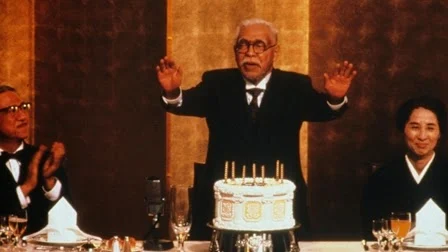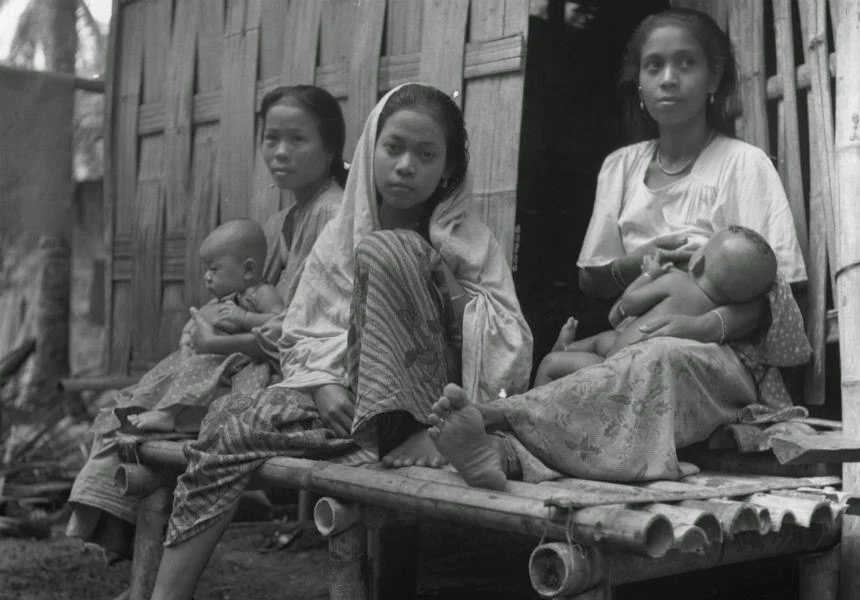Tragic Orphans - Indians in Malaysia
Author: Carl Vadivella Belle

This book can easily be described as one of the most depressing books I have ever read. Extensive research by the author into all nooks and corners of Malayan/ Malaysian history from the pre-Malaccan sultanate all the way to the 21st century makes it an excellent go-to book for history. Along the way, he narrates how Indians landed and got entwined in the country's fate and how some's fate never changes over the 7 generations that have lived here.
It is mind-boggling that even though Indian coolies were sent to various colonies in the British Empire as labourers, most immigrants in other countries (Fiji, Surinam, Ethiopia, Trinidad, Tobago, South Africa) mostly have reached great heights. Unfortunately, their poor cousins in Malaya remain weak and even more pathetic than they were under their colonial masters.
In many ways, this book reminds its readers of Janakey Raman's 'Malaysian Indian Dilemma', which peels out the entire history of the region from the time of the Srivijaya Hindu empire all through the great Malaccan Empire, European Colonialism, World War 2, Merdeka till the Mahathir era and Hindraf.
Indian, South Indians, would not have reached Malaya if slavery was not abolished in the 19th century. After the African slaves became hostile, rebellious, and challenging to manage and the realisation of the Western world of the plight of the slaves following the American Civil War, the colonial masters looked for alternative victims to be exploited under a different guise.
In came the labour force in the form of the South Indian pathetic victims who fell into bad times. They had, for years, a self-sustaining economic system which left everyone in the community taken care of. With the new world order in the early 20th century, where international trade became fashionable, gold was the standard for trade, and the looting of the national invaluable coffers by the debonair invaders left Indians beggars in their own backyard. The worsening social disparity perpetuated by the British became a significant push factor for them to dive into the trip to the new land of promise in the East through the feared Black Waters.
With their entrepreneurial skills, the British brought various crops to be cultivated in their cash cow colony, Malaya.
Slave-like recruitment was done through money-minded agents through the indentured labour system. Jumping from the frying pan into the fire, travelling for days together in an unhealthy herd-like condition in bunkers to discover that they had reached a thick tropical jungle sprawling with snakes, malaria-spreading noxious mosquitoes and tropical sprue.
All the while, the colonial masters cajoled the native inhabitants of Malaya to continue doing what they did best in their villages, padi fields and palaces with bountiful rewards from the exploits from the land. The British industrialised the country by bringing in Chinese and Indian workers in droves to the extent that the guests' population exceeded the natives at one stage.
The Indians always had a raw deal from the word go. Bullied as indentured labourers, they were later hoodwinked through another system - the kangany system, where outstanding leaders of workers were sent to recruit workers from interior villages in South India. It was just a new set of clowns in brand-new costumes. Indian workers were paid peanuts even when the global market's rubber price plummeted. Consistently, they were paid lesser wages all throughout history than their Chinese counterparts.
Social problems were also an issue with Indian workers. Due to a shortage of Indian women for companionship, frequent fights used to break out over women. Alcohol consumption worsens their social problem. As for the British Dorais, state-sponsored arrack shops were the best way to keep them subdued. Moreover, they made back money by taxing the liquor and making it the only outlet for miles together within the vicinity of their estates!
People were living in a time when Social Darwinism was in vogue. The general consensus around the world was that the whites, especially the Anglo-Saxons, were the superior beings around, and it was justified to conquer and open the eye of the realisation of the natives. All these changed when World War 2 hit our shores. The fallacy of paternalistic British protection vaporised into thin air. The erroneous misconception of the British superiority (to lose to the Japanese) and the assumed kind-heartedness of the Asians came to light by the actions of the brutal rule of the Japanese regime.
The 1940s stimulated the nationalistic spirit of the Malaysian Indians with turns of events in their former motherland. Visits from Nehru, Chandra Bose and EV Ramaswami inspired them to improve their own standings. Some even enrolled in the course of freeing India from the colonial yoke and even sleeping the enemy, the Japanese, towards this end. This resistance continued even when the British returned to Malaya, which they had shamelessly abandoned 4 years previously in the dark of the night. This incurred the ire of the returning colonial masters who were more interested in the royal family, elitists, and businessmen and fighting the new ideology which was precariously creeping into the territory, communism. The Malaysian Indians who were vocal about the plight of the working class, as logically aligned with parties afflicted with working-class issues and unions, were viewed as troublemakers. What's more, when the Communist Party of Malaya had their tentacles all entwined in these associations.
Year in and year out, the cry was the same - demand for better remuneration in place of a pittance, better living conditions and basic necessity of life - wholesome education for the offspring. The Chinese immigrants learnt in the fifties that their fate was in their hands. They improved their own economic and political standings to squeeze the political leaders for their place in the sun. Their Malaysian Indian counterparts, however, perhaps to their fatalistic outlook on life events, depended too much on the leaders to pave the way. Their leaders have repeatedly failed them miserably with their repeated failed attempts in business and education ventures. Internal factional squabbles worsened their already weak position in the coalition of power in the country.
The Allied government, which took the realm of power from the British, had no real desire to include the Indian leaders in the pursuit to lead the helm. It was more of an afterthought as requested by their colonial masters. Due to their weak leadership, the Indian party have repeatedly found themselves in trouble deep requiring big brother UMNO to bail them out. This had given the submissive MIC little bargaining power and had often been bulldozed over.
The earlier Malaysian Indian leaders (in CIAM and MIC) were elitists who showed scant interest in the plight of the poor Indians. The educated Indians and Ceylonese were even aloof of the Indian problem and would not rather associate themselves in the same boat. After 1955, the tide changed. The elitists shunned MIC, only to be filled with particular ethnicity fighting for specific agenda.
Malaya started Independence on the wrong footing. Race politics which eased British governance continued into the 60s as a pacifier to keep everybody happy.
The euphoric bubble of Independence soon burst on their faces. The estate workers soon realised that the local bosses were worse off than their English counterparts. They say that at least the British were more humane! Per capita, their income actually shrank.
The racial riots worsened their social standings. The NEP policies made it appear as if only the Malay peasants were experiencing poverty as dictated by the internal ultranationalist.
Without definite direction in their future, devoid of living skills and education, the estate's fragmentation and closures drew the unprepared Indians to fill the fringes of suburbia to be labelled as urban poor. This led to many disillusioned youths into vice and gaining notoriety for the wrong reasons.
Their story only gets more tragic as much of their misery dons the newspapers on a daily basis - body snatching, police brutality, gangsterism, political wrangling, and the list goes on.
Tragic orphans?
Tragic, as their melancholy never seems to be over. Escaping the clutches of starvation and depressing living conditions from their motherland, hoping to change their fortunes, they embarked on a life-threatening journey beyond the dark oceans. At their destination, they realise that they have been shortchanged. And it gets worse as the country improves by leaps, and bound by their sweat, blood and life, their descendants continue with the same hopelessness.
Orphans, like nobody's child, like a wildflower, are growing wild. First, their guardians, their masters abandoned them, their mandors bullied them, and the system took them for a ride. When they demand justice, their services are terminated only to have their work replaced for lesser pay requiring foreign workers. People of the same ancestors but of higher social and educational standings would rather stay aloof than be associated with the drunken peasant class problem. They were pretty comfortable moving in circles around in the circles of the Caucasians! They thought the colonial masters were evil and demanded Independence from them, only to discover the local businessmen were worse, interested in the balance sheet rather than humanity, jumping from the frying pan into the fire.
 |
| The Author at Batu Caves 1987. |
 It is weird watching Steve Carrel in anything but a comedy role. Here he is a dark psychologically disturbed millionaire with a childhood issues. He is portrayed as a cold blooded and self centred man who would use his money to buy love and importance.
It is weird watching Steve Carrel in anything but a comedy role. Here he is a dark psychologically disturbed millionaire with a childhood issues. He is portrayed as a cold blooded and self centred man who would use his money to buy love and importance. It is weird watching Steve Carrel in anything but a comedy role. Here he is a dark psychologically disturbed millionaire with a childhood issues. He is portrayed as a cold blooded and self centred man who would use his money to buy love and importance.
It is weird watching Steve Carrel in anything but a comedy role. Here he is a dark psychologically disturbed millionaire with a childhood issues. He is portrayed as a cold blooded and self centred man who would use his money to buy love and importance.


















